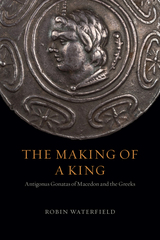
A condensed Roman history of non-Roman civilizations.
To Justin (Marcus Junian(i)us Justinus), otherwise unknown, is attributed our abbreviated version of the lost Philippic History by (Gnaeus?) Pompeius Trogus, a massive account, in forty-four books, of the non-Roman world and its civilizations, from mythic beginnings through Alexander the Great, the Hellenistic kingdoms, and Parthia. Trogus’ work thus complemented the monumental history of Rome by his Augustan contemporary, Livy, and in high style traced similar moral themes: rulers and states that lack such virtues as moderation, justice, and piety bring harm or ruin on themselves, and often on their realms as well.
Justin, working at some time in the late second to the late fourth century AD, did not produce a strict epitome or summary but what he calls “a brief anthology”: not unlike Florus (LCL 231), who used Livy’s history as the primary source for a brief but original military history of Rome, Justin freely selected what suited his own purposes, favoring “what makes pleasurable reading or serves to provide a moral,” with an eye to the kind of emotive anecdotes that might be useful to orators. He also blends Trogus’ language with borrowings from literature of subsequent generations. Justin’s anthology became one of the most widely read and influential books in the Middle Ages and Renaissance, indeed the main authority on world history other than Roman, surviving in more than 200 manuscripts.
Also included in this edition are the “Prologues,” summaries of Trogus by some other compiler, which preserve many details that Justin omits or reports differently.

A condensed Roman history of non-Roman civilizations.
To Justin (Marcus Junian(i)us Justinus), otherwise unknown, is attributed our abbreviated version of the lost Philippic History by (Gnaeus?) Pompeius Trogus, a massive account, in forty-four books, of the non-Roman world and its civilizations, from mythic beginnings through Alexander the Great, the Hellenistic kingdoms, and Parthia. Trogus’ work thus complemented the monumental history of Rome by his Augustan contemporary, Livy, and in high style traced similar moral themes: rulers and states that lack such virtues as moderation, justice, and piety bring harm or ruin on themselves, and often on their realms as well.
Justin, working at some time in the late second to the late fourth century AD, did not produce a strict epitome or summary but what he calls “a brief anthology”: not unlike Florus (LCL 231), who used Livy’s history as the primary source for a brief but original military history of Rome, Justin freely selected what suited his own purposes, favoring “what makes pleasurable reading or serves to provide a moral,” with an eye to the kind of emotive anecdotes that might be useful to orators. He also blends Trogus’ language with borrowings from literature of subsequent generations. Justin’s anthology became one of the most widely read and influential books in the Middle Ages and Renaissance, indeed the main authority on world history other than Roman, surviving in more than 200 manuscripts.
Also included in this edition are the “Prologues,” summaries of Trogus by some other compiler, which preserve many details that Justin omits or reports differently.

"Combining the thoughtful use of theory with a vivid historical ethnography, this is an important, courageous, and pioneering work which opens up the whole issue of nation-building in northern Greece."—Mark Mazower, University of Sussex


In this book, distinguished historian Robin Waterfield draws on his deep understanding of Greek history to bring us into the world of this complicated, splintered empire. He shows how, while Antigonus was confirming his Macedonian rule through constitutional changes, the Greeks were making moves toward independence. Two great confederacies of Greek cities emerged, forming powerful blocs that had the potential to resist the power of Macedon. The Making of a King charts Antigonus’s conflicts with the Greeks and with his perennial enemy, Ptolemy of Egypt. But Antigonus’s diplomatic and military successes were not enough to secure peace, and in his final years he saw his control of Greece whittled away by rebellion and the growing power of the Greek confederacies. Macedon’s lack of firm control over Greece ultimately made it possible for Rome to take its place as the arbiter of the Greeks’ future.
The Making of a King is Waterfield’s third volume about the Greeks in the era after Alexander the Great. Completing the story begun in his previous two books, Dividing the Spoils and Taken at the Flood, it brings Antigonus and his turbulent era to life. With The Making of a King—the first book in more than a century to tell in full the story of Antigonus Gonatas’s reign—this fascinating figure finally receives his due.
READERS
Browse our collection.
PUBLISHERS
See BiblioVault's publisher services.
STUDENT SERVICES
Files for college accessibility offices.
UChicago Accessibility Resources
home | accessibility | search | about | contact us
BiblioVault ® 2001 - 2024
The University of Chicago Press









